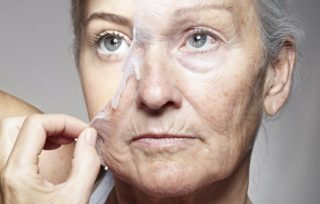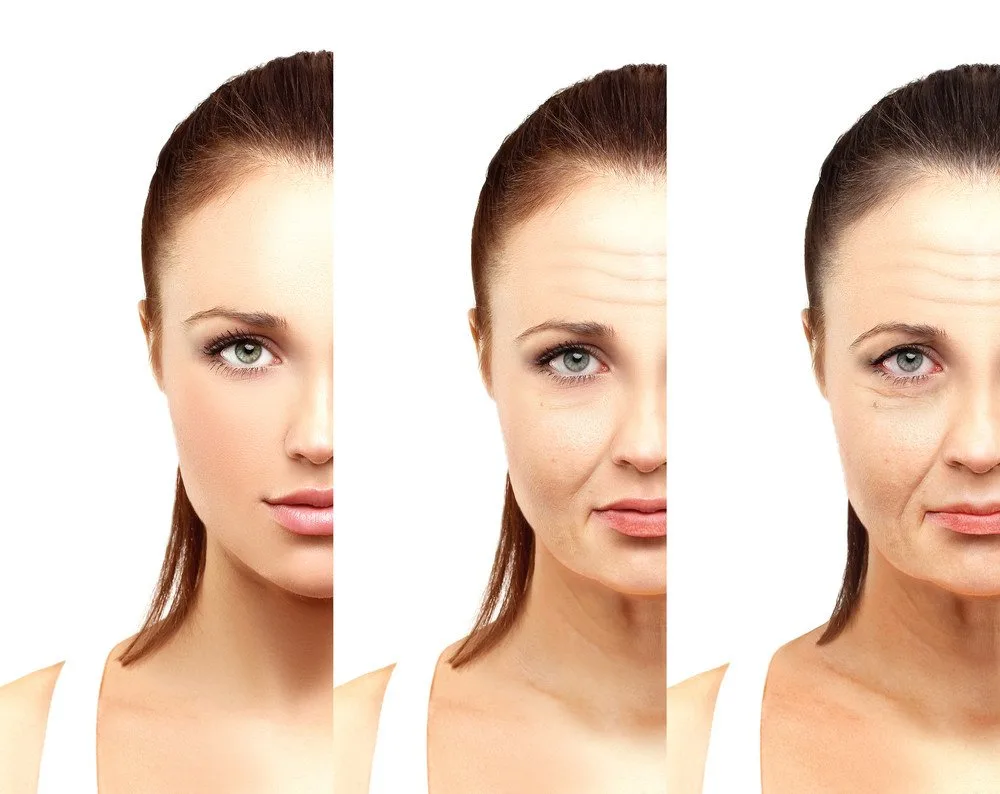We hear about free radicals all the time. Whether in conversation about the latest beauty product or when sharing tips on how to prevent inflammation – free radicals are a hot topic that we just can’t seem to stop talking about. Yet, how many of us understand what they are?
Yes, we know free radicals are bad, but why? Read on as we do a complete breakdown of the biggest contributors to wrinkles and diseases.
What are free radicals?
Free radicals are unstable and highly reactive atoms with an unpaired electron. Surprisingly, free radicals are produced by the body for a purpose. They help with liver detoxification, and they even support immune health. Unfortunately, an excess of free radicals can cause harm.
As free radicals are missing an electron, free radicals will steal an electron from healthy molecules in an attempt to stabilize itself. Unfortunately, this creates a chain reaction as that molecule will turn into a free radical, and will thus seek out an electron.
Free radicals cause oxidative stress which means that there are more free radicals in the body than antioxidants and the excess of free radicals can cause serious damage to one’s health.
What causes free radicals?
The most common causes of free radicals include: 
- Environmental pollutants (pesticides, smog, ultraviolet radiation)
- Smoking
- The consumption of drugs and alcohol
- High use of antibiotics
- Overtraining
- Chronic stress
- A diet high in fats, oils, sugar, and processed meats and foods
- Obesity
How do free radicals affect my health?
Free radicals can impact the health of your body and skin in a number of different ways.
For one, free radicals can cause premature aging as they attack the collagen and lipids in your skin. These two proteins not only help maintain the skin’s protective barrier, but also help to keep your skin supple and firm. A breakdown of either protein can lead to wrinkles, dryness, and dull skin. In fact, oxidative stress is responsible for at least 80% of all skin aging (1).
In other news, a review published in Redox Biology found that free radicals may trigger the growth of amyloid plaques in the brain. These plaques are commonly linked to Alzheimer’s disease.
Free radicals have also been linked to heart disease, cancer, diabetes, autoimmune diseases, and even kidney disease.
The Power of Antioxidants
Antioxidants are compounds in the body that help to reduce your risk for oxidative stress. They neutralize free radicals by donating an electron to free radicals without becoming reactive free radicals themselves.
Some common antioxidants include vitamins A, C, and E, glutathione, and coenzyme Q10.
What about antioxidant supplements?
Due to a lack of solid research, the FDA has yet to approve antioxidant supplements for medical use. Additionally, research from the National Center for Complementary and Alternative Health found that supplements did little to reduce the risk of developing chronic diseases.
Therefore, you’re going to need to find other ways to increase your body’s antioxidant levels.
Ways to fight free radicals
1. Eat an antioxidant-rich diet
Antioxidants not only stabilize free radicals but also help protect the skin from cellular damage. The best way to get them into your body is through your diet, preferably a plant-based diet.
Antioxidants can be found in a number of fruits and vegetables. These include squash, peppers, berries, carrots, cruciferous vegetables as well as green leafy green vegetables like kale and spinach.
Antioxidants are also abundant in green tea as well as cocoa, so don’t feel too guilty about indulging in a block or two of dark chocolate.
2. Avoid refined sugars and processed foods
Processed foods cause oxidative stress by triggering inflammation, and as inflammation is the core of many chronic diseases, one needs to avoid these types of food.
It’s also advisable to look at your alcohol intake, as this too can trigger oxidative stress.
3. Exercise
A study published in the Oncotarget journal found a strong link between physical activity and reduced risk for oxidative stress. This isn’t surprising considering the fact that exercising has not only been associated with a longer lifespan, but also a decreased risk of disease.
Now while you should do your best to stay active, even during a pandemic, it’s also important to not overwork yourself. Opting out of a rest day won’t only leave you exhausted, but it can also trigger oxidative stress (3).
4. Practice stress relief
There is a lot going on in the world, and it’s not doing our stress levels any favors. Unfortunately, chronic stress can trigger the formation of free radicals, which then affects our health.
Now, while we can’t completely rid our lives of stress, there are ways to manage it. This includes yoga, breathing exercises, reading a book, or even turning your home into your own personal spa.
5. Get enough quality sleep

The body needs sleep. It needs to rest, and it requires an opportunity to properly repair itself. Inadequate sleep not only triggers oxidative stress, aging your skin, but it has also been linked to lower levels of antioxidants (4).
If you are battling with your sleep patterns, there are plenty of ways you can get a better night’s rest. This includes essential oils, food, or even redecorating your bedroom.
6. Use adaptogens
Adaptogens are herbs that contain stress-relieving properties. They make the body more resilient to stressors like oxidative stress.
Popular adaptogens include ashwagandha, ginseng, Rhodiola rosea, and holy basil.
7. Include antioxidants in your skincare
If you’re worried about the harm that free radicals can cause to your skin, then you may want to look at the topical application of antioxidants.
Skincare products will contain popular and effective antioxidants like vitamins A, C, and E as well as CoQ10. Each antioxidant won’t only protect the skin, but it will also address the skin issues caused by oxidative stress. This includes the loss of elasticity and texture, and the formation of wrinkles and fine lines.
8. Wear sunscreen
As we’ve mentioned, the majority of skin aging is triggered by UV radiation. Now, while there are sun-protective foods, nothing beats the effectiveness of a broad-spectrum sunscreen with an SPF of at least 50.
Sunscreens should be worn every day, and that includes when you’re indoors, as the sun’s aging rays can still penetrate through the windows of your home.
Want to know more?
While there are foods and essential oils that can help reverse the effects of premature aging, adding flavor to our food with delicious spices can also do the same. In fact, there are anti-aging spices that can help you reverse the aging process.





![women [longevity live]](https://longevitylive.com/wp-content/uploads/2020/01/photo-of-women-walking-down-the-street-1116984-100x100.jpg)









